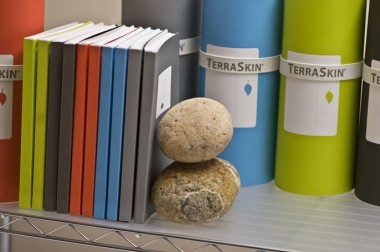The Clean Plate Club, Green School Supplies, and Frack

WM’s fav green hits from the web this week:
Are you cleaning your plate? Americans throw away up to a whopping 40 percent of the food they purchase, according to a Stockholm International Water Institute report, highlighted recently in National Geographic’s NewsWatch. Other countries are guilty of food waste sins, as well, with a third to one half of all food produced simply rotting globally. We find these to be highly nonsensical numbers in a world where over one billion people go hungry and or are malnourished. These figures are also big news in the water world since 70 percent of our collective freshwater resources are used to fuel food production. Leaders at the annual World Water Week held in Stockholm in late August drafted a plea to the international community to take action on the problem of food waste. What can you do? Consume responsibly by buying what you’ll eat and eating what you buy. For support, visit the Love Food Hate Waste project.
Back to Business, eco-style. Back-to-school buzz has been dominating the web along with ultra-smart lists of eco-friendly and non-toxic back-to-school supplies. Whether you’re heading to class, getting your kids off to school, or want some great gear to inspire your fall work schedule, check out a few of our favorite eco wonders, such as those on the list at Earthingtech (including a bamboo keyboard, solar paneled backpack, and bicycle-mounted battery charger that powers your electronics while you pedal). We also love the TerraSkin inkless journal, which is packed with paper that is tree-, water-, and bleach-free paper. Crafted of mineral powder and non-toxic resin, this ground-breaking paper is essentially made out of rock; it can also be written on by virtually any tool including keys, coins, soda can tabs, and, of course, pencils. Too cool for school.
Frack Attack. Methane gas is fouling the waters in several Leroy Township, Pennsylvania homes, according to a recent NPR report. In mid-May, Mike and Nancy Leighton’s front yard water well began overflowing. Meanwhile, at a neighboring house, Ted and Gale Franklin’s well had gone dry. Days later, the Franklin well was also bubbling at the surface, pouring out water “as black as coal.” Pennsylvania’s Department of Environmental Protection blames Chesapeake Energy’s nearby hydraulic fracturing (aka fracking), the practice of extracting natural gas using the power of millions of gallons of water. The fracking companies claim that these are isolated incidents relating to faulty gas well installations. The issue has left the Leightons and Franklins contending with contaminated water, flammable gases pooling in their yards, a constant risk of fires or explosions, and decreased property values. For more information on fracking, check out NPR’s special series on the topic.
Kamagra oral jelly Online something to buy the most convenient way. He doesn’t demand from you any actions except how to visit the website. And in separate with goods necessary to you to put the end. To specify your address and to wait for the supplier to whom you will give money.


LET'S GET SOCIAL